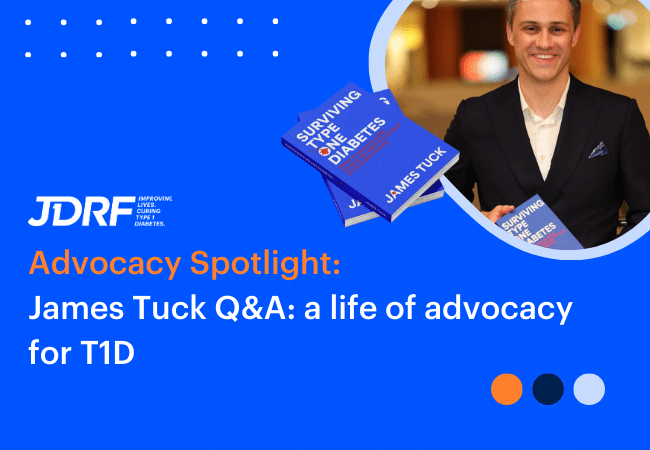What Craig Spence wants you to know about taking charge of your health with T1D
As a person living with type 1 diabetes, an unfortunate reality is that you face a higher risk of developing long-term health complications, including a higher risk of developing problems with the heart and large blood vessels.
Some of the risks include:
- Heart attack caused by blockage of the blood supply to the heart
- Stroke caused by blockage of the blood vessels supplying the brain
- Foot ulcers and infections caused by blockage of blood vessels supplying the legs and feet. Unfortunately, this can lead to the loss of a toe, foot or lower leg.
Regular monitoring of blood pressure, cholesterol levels, and the pulse in a person’s feet are important for ensuring the health of large blood vessels.
Craig Spence has been living with type 1 diabetes for 20 years, and throughout his life has maintained a healthy lifestyle and high level of fitness by regularly swimming, cycling, running and going to the gym. On average, Craig exercised 2 hours each day, and to be diagnosed with type 1 diabetes at age 36 came as quite a shock.


As part of his diabetes management to monitor any potential health complications, Craig always made sure to have regular health check-ups, and a heart disease history in his family prompted him to have his heart checked.
“The doctors thought it was a waste of time as I was extremely fit, didn’t smoke, rarely drank alcohol and had no symptoms to suggest I had any issues. I insisted on getting my heart fully checked as part of my diligence in having my regular health appointments.”
The results indicated that he had one fully blocked artery and another 75% blocked. Before the shock wore off, he was booked in for bypass heart surgery.
Although Craig felt apprehension about how this would affect his quality of life, the operation was successful.
“Despite a tough recovery, my blood sugars have improved after the shock of surgery caused a lot of fluctuations and I continue to exercise up to 2 hours a day.”
“I want to tell my story not to scare people but to create awareness that according to heart specialists, we as diabetics often don’t get the usual symptoms like chest pain, jaw ache, and shortness of breath when we have a heart issue. In a diabetic world where the focus is on blood sugar levels, eyes and nerve ending complications we often neglect to get our hearts checked.”
“The key is not to bury our heads in the sand. The complications can be eliminated or reduced by sharing our experiences and getting our health checks done regularly.”
Talking or thinking about long-term complications can be difficult and upsetting. It can also be hard to make changes to how we live today to decrease the risk of potential health problems that may not show up for decades. But managing your diabetes by taking your insulin, checking your blood glucose levels regularly, eating properly and getting regular exercise is the best way to decrease your risk of developing complications in the future.
If you found this helpful, more information on other complications such as kidney disease, eye problems and gum disease is available in Straight to the Point: A guide for adults living with type 1 diabetes.




